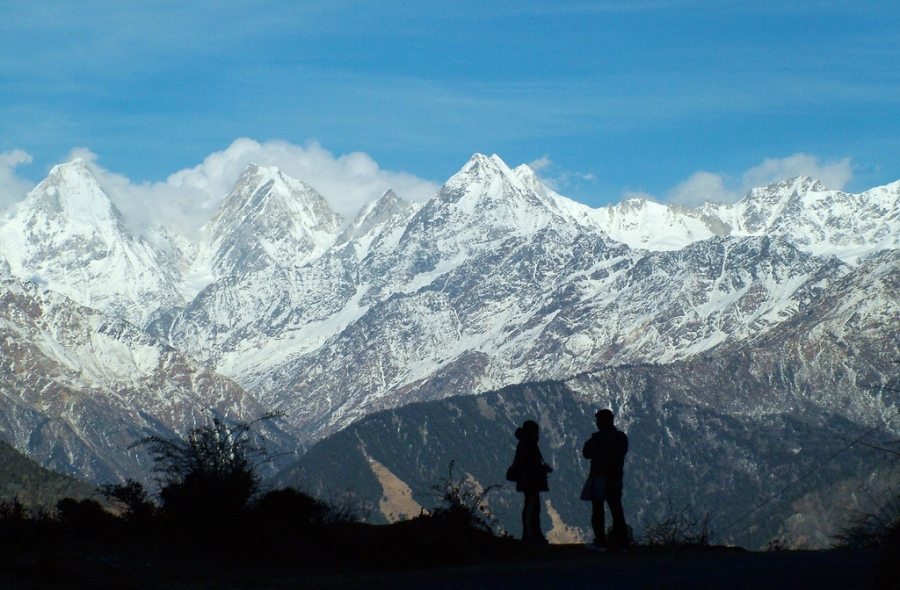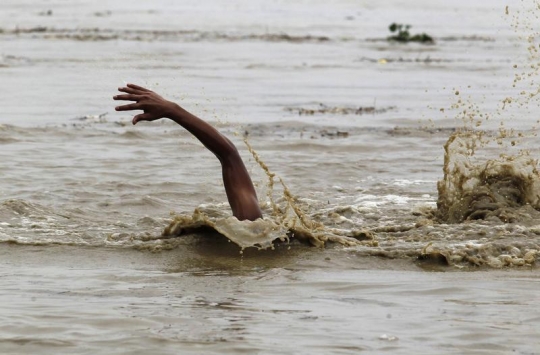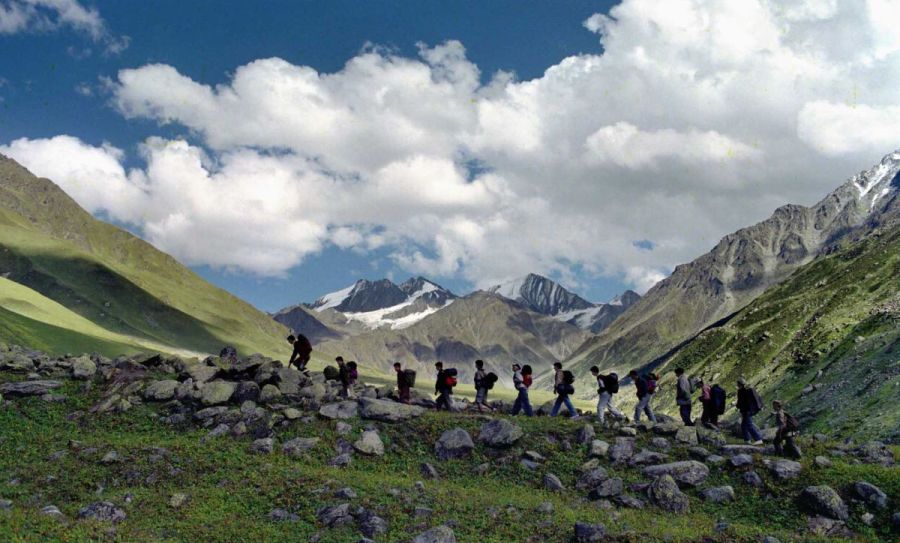
– Neha Sen
(Read more through the link: http://blog.lokrang.org/a-call-to-uttarakhand/)
The ‘aanchal’ of the north is the playground of Ganga Maiyya. Those who bathe in the hallowed river are believed to have all their sins washed away and they who breathe their last on her lapping waters get a one way ticket to everyone’s favourite afterlife destination- heaven. Perhaps you have been to Haridwar, the place where thousands of devout Hindu religious families go about thrice a year to pay homage to the personified goddess. Here mouldable nine year old minds may experience some permanent trauma by the resident monkeys who may snatch ice creams out of their hands (a situation NOT akin to mine). Innumerable poems have been written about the splendour of the mighty Ganges as it flows through Haridwar. My grandmother had an unfulfilled dream- to cleanse the skin of her hands and her soul in the waters of Haridwar. The simply written poem ‘Haridwar’ reflects this sentiment.
When I was innocent
of the scheme of life
(if at all life then had a scheme)
it used to puzzle me
to see you sobbing, mother
your long face and eyes
full of unnamed sadnesses.
For didn’t you yourself say
that life was good
and there was much
to be grateful for?
So I never understood
your vehemently voiced
longing, every yet again
for Haridwar.
Haridwar.
As I grew up
it became our private joke:
You said you’d leave for Haridwar
after I left home for hostel.
You said you’d live in Haridwar
after I got a job.
And surely when I got married
in Haridwar you would dwell.
But you never went.
Haridwar
was the first real confession
my mother-in-law made to me
when I stepped into her home,
one woman to another.
She said, soon, she would go
to Haridwar.
It seemed then like déjà vu,
a joke gone sour.
After her daughters
were settled, perhaps.
After the grandchildren
had grown, perhaps.
After this year,
maybe after the next
she would certainly head
for Haridwar.
But she never went.
-Manjul Bajaj
(Read the entire poem through the link: http://creative.sulekha.com/haridwar_79254_blog)
More often than not, the Ganga can be found in her tranquil state of mind, but when the tempers begin to run high, she’ll flood and slay everything in her path. The 2013 floods in the very home of the goddess left indelible scratches which are visible till date on the mountain’s rocky crown. Like the myth I gave a verbatim of earlier, they say that death in the arms of Ganga Ma will take you to heaven. On the ironic, perhaps brighter side of things, the tumultuous river waves sent 5200 people there that cataclysmic day.

The poignant, iconic verse, ‘Beh Gaye‘ written by Amitabh Bachchan (God of Bollywood himself. If you couldn’t tell, I’m a Big B Jabra fan) and Prasoon Joshi in the aftermath of the flash flood became closely associated with the disaster. Given here is the English translation of this heart rending composition.
That house was swept away,
The pictures kept in the house were swept too,
The faces, smiling in the pictures, were swept away,
families flowed away, hundreds, thousands..
That prayer was swept away,
the heads bowed down in reverence were swept away,
It was heard, that when a mother’s child flowed,
she jumped into the river, seeing her..
lullabies were swept,
squeals of childrens were swept..
fathers were swept away, hundreds, thousands..
Millions of India’s tears flowed away
The tears are in millions,
but we are in millions too..
Come, let’s care for them..
Be a friend, a child to someone..
Be a mother, a father,
Be famile to someone..
Let’s rise a sun, rise a hope..
Come, let’s make a morning for someone..
(Follow the link to read the original Hindi version of ‘Beh Gaye’: http://www.bollymeaning.com/2013/08/beh-gaye-poem-for-uttarakhand-relief.html
Follow this link to watch the video of ‘Beh Gaye’: https://www.youtube.com/watch?v=d7GFace_5Gk)

Despite all the fireballs Hades threw, Uttarakhand emerged blooming and bright as ever. Aphrodite still hails her mountains; Devi Ma presides there, unruffled; pilgrims troupe to the temple over roads that had once been engulfed for breakfast by the river waters. The stitches in the patchwork of the land of mountains may have loosened but the tailor, time, strengthened them. The mortal man is craven in the head of nature. After all, “What are men to rocks and mountains?”; and in the case of Dev Bhoomi, the Gods!

